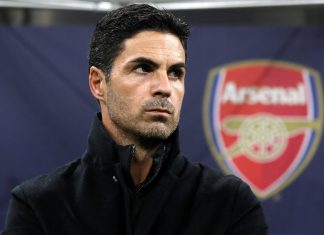Two stadiums are yet to begin construction, the roof at the Maracana needs to be finished, and rows over finance and a host of other infrastructural problems dog the country in the build up to a crucial three years for the country – they host the Olympic Games in Rio just two years later.
Brazilian football chief Ricardo Teixeira informed FIFA last week that Brazil would be ready for the 2013 Confederations Cup, despite concerns over the slow progress it is making building and renovating stadia and other infrastructure for the 2014 World Cup.
The next day, it was announced that the Maracana, Rio de Janeiro’s iconic stadium and home to Brazilian champions Fluminense (as well as Flamengo), needed a new roof. The old roof had problems, and it was cheaper to build a new one than to fix the problems with the existing structure, which was deteriorating.
Teixeira seemed to be a man desperate to convince the powers that be that his country would put on a spectacle to be proud of. So shambolic has been the organisation and orchestration of preparations for the 2014 event, that it has made South Africa look like first rate professionals when it comes to putting on a sporting spectacle. Of course, the South Africans did exceptionally well in the end, but the years before saw their fair share of errors and concern.
It might be just a bit premature, as well as overly presumptuous, to think that Brazil will similarly come through in the end with flying colours. Two of the chosen venues for World Cup games, Natal and São Paolo, have yet to see work start on their respective stadia, and it is the fiasco that has prevented the construction of the latter which is most frustrating for Teixera and the World Cup organisers.
The proposed Itaquera stadium is to be the new home of the São Paolo’s biggest side, Corinthians, yet the club only want to build a ground with a capacity of 48,000. Which would be fine, were it not for the fact that the stadium has been designated as the one they wish to host the opening game of the tournament (the Maracana, incidently, is to host the final). Which means, under FIFA regulations, that the ground must hold 65,000 spectators. What that has meant is a seemingly intractable row over who will pay for the remaining 17,000 seats. Corinthians want FIFA to pay; FIFA believe that it is Brazil’s responsibility, and an elaborate game of pass the financial parcel has ensued, though organisers insist that they have the relevant assurances which will mean construction will go ahead and that the money will be found, as it usually invariably is. But not without a game of chicken between those trying to avoid having to take care of the responsibility.
And that is just São Paolo, Natal and Rio. The country has been dogged by other problems, such as the fact that almost daily flights are cancelled as Brazil struggles to cope with the increasing volume of flights that they are having to deal with as tourism and business picks up ahead of the tournament. A variety of other complexes, airports and hotels have yet to be constructed, and Pélé has warned of the country facing an ‘embarrassment’ the way things are currently going.
Perhaps it is that Brazil has had so long to prepare. Unlike other countries, they have not gone through a rigorous voting process. South Africa lost to Germany in the race to host the World Cup in 2006, which upset President Sepp Blatter so much that he engineered a system whereby the tournament would rotate around the continents. Conveniently starting in Africa, this ensured South Africa an easier run for the 2010 event, which they won by beating off Morocco. For Brazil though, there was no serious opposition when the tournament came to South America in 2014 (though Colombia briefly threatened to launch a bid). As a result, they knew back in 2007 that they would host this tournament. Too long? Perhaps. It may have seemed like they have all the time in the world to prepare, but Brazil is far from ready for hosting the world’s premier football event.







